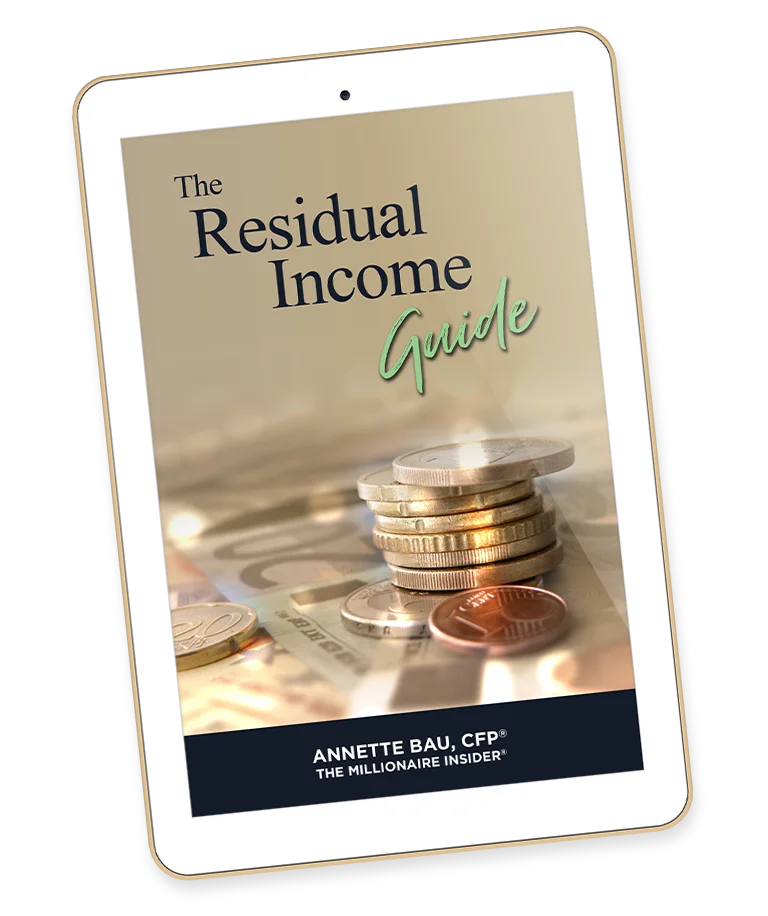If you’re like most pre-retirees or retirees, you’ve probably asked yourself, “Will I have enough money to last the rest of my life?” Closely followed by, “How can I receive guaranteed income during retirement?”
After 35 plus years advising clients, here’s what I know: peace of mind in retirement isn’t only about the size of your nest egg—it’s about predictable, guaranteed income you can count on. That’s where annuities can play a pivotal role. Used wisely, they help you shift from wealth accumulation to reliable income so you can enjoy retirement with clarity and confidence.
Before making any investment decision with your retirement savings, consider your objectives, risks, charges, expenses, and other factors specific to your situation.
What Is a Retirement Annuity?
A retirement annuity is a contract with an insurance company. You contribute funds—either a lump sum or periodic payments—and in return receive income either immediately or in the future. Many contracts also return a guaranteed rate of interest for a set period.
Think of an annuity as a way to create your own pension. Payments can be structured for a specific number of years or for life, and many contracts offer joint-life options to continue income for a spouse. The enduring appeal is simple: you can have a secure income that you won’t outlive, which is especially valuable given rising longevity and market volatility. 
Types of Retirement Annuities
The “best” annuity depends on your goals, risk tolerance, timeline, and need for liquidity. Here are the primary categories, with plain-English pros and cons.
1. Immediate Annuities
How it works: You pay a lump sum and start receiving income within 30 days to one year.
Best for: Retirees who want instant, guaranteed income.
Pros
- Straightforward, predictable payments
- Can be structured for lifetime income
Cons
- Principal is generally inaccessible
- Payments are typically fixed and may not adjust for inflation
2. Deferred Income Annuities (DIAs)
How it works: You invest now, and income begins later (typically 5–10 years out).
Best for: Pre-retirees who want to lock in future income at a target date.
Pros
- Higher monthly payments the longer you defer payouts
- Helpful for coordinating income with retirement age
Cons
- Principal is tied up; limited liquidity
- Fewer adjustment options once issued
3. Fixed Annuities

How it works: Guaranteed interest rate for a set term, similar to a CD.
Best suited for: Conservative savers seeking stability and predictable growth.
Pros
- Principal protection and tax-deferred growth
- Insulated from market declines
Cons
- Lower growth potential
- May not keep pace with inflation
Pro tip: Verify the financial strength of the issuing insurer using independent rating agencies.
4. Fixed Indexed Annuities (FIAs)
How it works: Interest is linked to a market index (e.g., S&P 500®) with downside protection; your principal isn’t exposed to market loss.
Best for: Those seeking moderate growth potential without full market risk.
Pros
- Potential to benefit from portions of investment gains
- Principal protection in down markets
- Optional income riders can guarantee lifetime payouts
Cons
- Growth limits via caps, spreads, or participation rates
- Product terms can be complex
For many clients, FIAs strike a practical balance between safety and opportunity.
5. Variable Annuities
How it works: Invests in market-based subaccounts (similar to mutual funds), so values fluctuate. Individuals who sell variable annuities are generally FINRA-registered representatives and/or investment advisers.
Best for: Investors with higher risk tolerance and a longer time horizon.
Pros
- Highest upside potential among annuities
- Tax-deferred accumulation
- Optional riders for lifetime income and/or enhanced death benefits
Cons
- Market volatility and risk of loss
- Typically, higher fees and more complexity
6. Qualified Longevity Annuity Contracts (QLACs)
How it works: A special deferred income annuity funded with IRA/401(k) assets that allows you to delay Required Minimum Distributions (RMDs) and start income as late as age 85.
Best for: Higher-asset households aiming to manage taxes and secure late-life income.
Pros
- May reduce taxable income earlier in retirement
- Provides longevity protection deep into retirement
Cons
- Contract limits and rules are restrictive
- Professional guidance is essential to avoid mistakes
For individuals who also want life insurance or long-term care insurance coverage, a hybrid plan may be a good option. To learn more, click here.
Income Choices: Lifetime vs. Period Certain
When you set up an annuity, you’ll choose a payout structure:
- Lifetime Income: Payments last as long as you live (joint-life options can continue income for a spouse).
- Period Certain: Payments continue for a fixed timeframe (e.g., 10 or 20 years). If you pass away during the period, beneficiaries receive the remaining payments.
In practice, many retirees prefer lifetime income because it reduces the fear of outliving their savings.
Benefits of Retirement Annuities
Across types, annuities can deliver:
- Guaranteed income for life or a set period
- Peace of mind—you know a paycheck is coming
- Tax-deferred growth until withdrawal
- Downside protection with fixed and indexed contracts
- Optional riders (e.g., income enhancements, long-term care, legacy features)
- No contribution limits (unlike IRAs/401(k)s), subject to issuer guidelines
Combined with Social Security, pensions, and portfolio income, annuities can form a reliable foundation for your essential expenses, freeing up other assets for travel, hobbies, gifting, and contributions.
Key Considerations Before You Buy
Annuities are powerful tools, but they aren’t one-size-fits-all. Evaluate these factors first:
- Retirement Goals: Do you need a guaranteed income to cover essentials? Are you more concerned with market risk, longevity, or leaving a legacy?
- Liquidity Needs: Most contracts include surrender periods (often 7–10 years). Maintain a separate emergency fund and avoid tying up dollars you may need soon.
- Taxes: Withdrawals are generally taxed as ordinary income. Whether you fund the annuity with qualified (IRA/401(k)) or non-qualified money affects tax treatment and RMD planning.
- Costs & Fees: Variable annuities can carry higher fees due to subaccounts and riders. Compare features, costs, surrender schedules, and guarantees across insurers.
When an Annuity Makes Sense

I often recommend considering annuities when clients are:
- Within 10 years of retirement
- Concerned about outliving their assets
- Seeking predictable income regardless of market swings
- Looking to supplement Social Security and/or a small pension
A practical framework is to cover core expenses—housing, healthcare, food, and insurance—with a guaranteed income (such as Social Security, pension, or annuities). Then use investment portfolios for discretionary goals.
Real-Life Example
Paul and Sally, in their early 60s, had saved diligently but feared a bear market early in retirement. We allocated a portion of Paul’s IRA to a fixed indexed annuity with guaranteed lifetime income starting in five years. Now they know what’s coming in every month—enough to cover their essentials—so they can travel, golf, and spoil the grandkids without second-guessing every purchase. That’s the power of annuities: not just income, but confidence.
My Personal Take
I include annuities in my own retirement plan. Even with decades of investment experience, I value the certainty of guaranteed income. My husband was initially skeptical; today, he loves the stability. It’s not about chasing the highest return; it’s about designing a life where you feel free to spend your time and energy on what matters most.
Final Thoughts: Retirement Annuities
Annuities aren’t the answer to everything, but for many pre-retirees and retirees, they’re a vital piece of a comprehensive income plan. The key isn’t the product, it’s the plan. When annuities work alongside Social Security, pensions, and investments, you can reduce worry and live more fully.
You’ve worked too hard to spend retirement second-guessing your future. The right strategy can help you feel confident, secure, and in control.
Next Steps
If you are ready to create a secure financial future you love, start here:

Disclosure
The Millionaire Insider® copyrights all materials and intellectual property.
This information is for educational purposes only. It is not intended to replace the advice of any advisor or specialist, nor to provide investment, financial, tax, retirement, planning, or healthcare advice.
Always consult with a qualified professional before making any financial decisions or changes.

